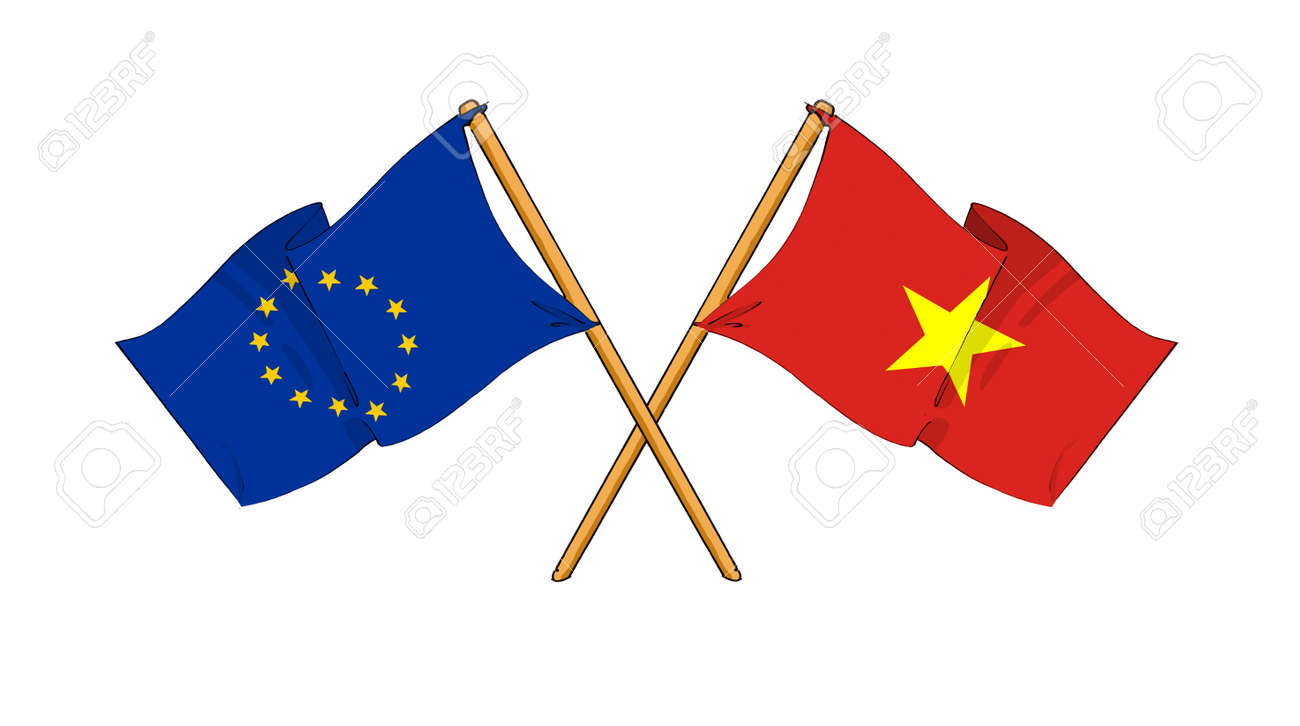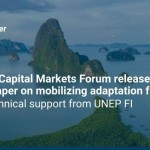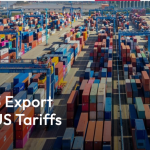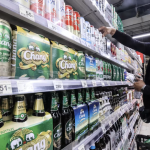Total number of posts 463.
 FDI from the EU into Vietnam after 2 years of decline has increased again in 2021, but to improve the quality of this capital flow, Vietnam needs to improve the investment environment.
FDI from the EU into Vietnam after 2 years of decline has increased again in 2021, but to improve the quality of this capital flow, Vietnam needs to improve the investment environment.
Vietnam accounts for 2-5% of the outside-EU FDI of the EU
On the morning of October 25, the Institute for Economic and Policy Research (VEPR) - University of Economics - Hanoi National University held a seminar on "EU FDI into Vietnam in the context of EVFTA and EVIPA implementation". Information given at the event said that, despite being a major trading partner of Vietnam, in recent years, the EU's foreign direct investment capital into Vietnam is still very limited, not commensurate with its potential. capabilities of both parties.
Specifically, according to data from the Ministry of Planning and Investment, as of August 2022, Vietnam has attracted 35,539 valid foreign direct investment projects from about 140 countries and territories around the world. the world, with a total registered capital of 430 billion USD.
However, presenting the EU's FDI report on Vietnam in the context of the implementation of the EVFTA and EVIPA Agreements at the Talks, Dr. Nguyen Thi Thanh Mai - Hanoi National University said that: As of August 2022, currently There are 25 EU27 countries investing in Vietnam, with a total of 2,378 projects with a total registered capital of 27.59 billion USD.
That means, in terms of capital, EU FDI into Vietnam only accounts for less than 6.41% of the total capital attracted by Vietnam. In terms of projects, it only accounts for about 6.69%. This is a very small percentage compared to the potential of cooperation between Vietnam and the EU. In particular, calculated according to statistics of Eurostat and the General Statistics Office, the proportion of investment in Vietnam only ranges from 2-5% of the total amount of FDI that the EU allocates in the world.
According to economists, after a decline in 2020 due to the UK's official withdrawal from the EU as well as the effects of the Covid-19 pandemic. By 2021, the number of EU FDI projects in Vietnam is on the rise again and reaches the old peak of 2019.
EU FDI projects in Vietnam focus mainly on the manufacturing and processing industry. EU enterprises have invested in 18/21 sectors in the national economic sub-sector system in Vietnam. The three main areas of interest and investment are the processing and manufacturing industry; electricity production and distribution and real estate business. Recently, EU businesses tend to be interested in service industries such as logistics, post & telecommunications, finance, offices for rent, retail, clean energy, supporting industries, food processing, hi-tech agriculture, etc.
However, sharing at the Talks, Mr. Nguyen Chien Thang - Director of the Institute for European Studies said: The scale of EU investment projects is still small. The quality of EU FDI projects in Vietnam is still low.
Sharing the same view, Mr. Tran Toan Thang - Head of the Industry and Enterprise Economic Forecasting Department - National Center for Socio-Economic Information and Forecast (Ministry of Planning and Investment) said that FDI inflows in Vietnam are not commensurate with the potential and expectations of the relationship between Vietnam and the EU.
Explaining the reason why FDI from Europe to Vietnam is not large, Ms. Hoang Thi Hong Van - Head of the External Relations Department - European Chamber of Commerce in Vietnam said that: High logistics cost is also one of the main obstacles, making European FDI flows to Vietnam below expectation. Besides, labor and infrastructure issues also have many issues that need to be improved.
Raising the "quality" of EU FDI in Vietnam
Information at the talk also shows that the new context of the world economy, especially the context of Vietnam and the EU implementing the EU-Vietnam Free Trade Agreement (EVFTA) and the Investment Protection Agreement (EVIPA) will bring Vietnam many opportunities and challenges in attracting FDI from the EU.
In particular, in terms of the opportunity to be a new generation FTA with a wide scope of commitments, the EVFTA is expected to promote the next wave of FTAs in Vietnam and also help improve the quality of FDI projects. This is consistent with Vietnam's orientation in the Government's Resolution 50-NQ/TW on attracting high-quality FDI.
Meanwhile, the Investment Protection Agreement between Vietnam and the European Union (EVIPA) was signed with special significance, contributing to deepening the relationship between Vietnam and the EU, especially in terms of trade, opening up great opportunities for Vietnam to increase FDI attraction from EU countries.
The implementation of EVFTA and EVIPA is important for EU FDI flows to Vietnam because the EU is currently a large and potential economic partner of Vietnam. EVFTA is a new-generation FTA with commitments beyond tariff elimination. EVFTA is expected to bring opportunities for Vietnam to attract high-quality FDI through institutional, policy, and investment environment reforms.
However, the implementation of the EVFTA and EVIPA also brings Vietnam many challenges in attracting investment from EU businesses, especially in the new context of the world economy in general and the EU economy having much current volatility.
In particular, according to the research team, the advantages that EVFTA brings are only short-term, especially when the main competitors in ASEAN are competing with Vietnam in attracting FDI from the EU (e.g. Thailand, Indonesia, Malaysia, or the Philippines) is also actively negotiating an FTA with the EU; while the EU is aiming for a common FTA with the whole ASEAN region. In addition, the implementation of this agreement also creates pressures and costs related to institutional and policy reforms, and even reduces FDI flows to Vietnam, especially when global FDI flows are reduced and becoming more selective.
From the above statement, the report "EU FDI into Vietnam in the context of implementing EVFTA and EVIPA" by the Hanoi National University research team proposes a combination of solutions to enhance the efficiency of attracting this capital in the current period. In the coming time, including (1) strengthening research, propaganda, and dissemination on EVFTA and EVIPA; (2) institutional reform; (3) improving the quality of the business and investment environment; (4) improving the types of consulting services and facilitate investment; (5) focusing on training human resources; and (6) improving the quality of infrastructure.
Source: Cong Thuong News














